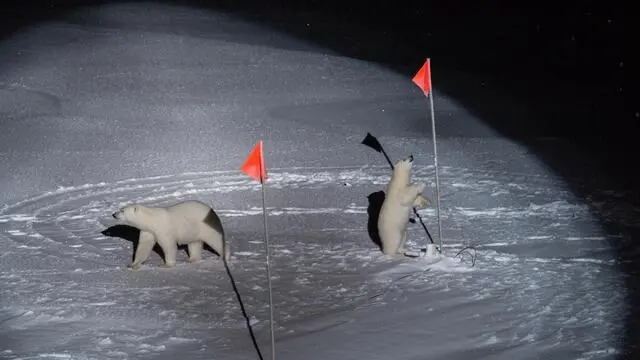Ricercatore tedesco attaccato da orso polare in Groenlandia

STOCCOLMA, 30 LUG - Un ricercatore tedesco è stato attaccato da un orso polare sull'isola di Traill, nella parte orientale della Groenlandia. La polizia locale ha reso noto che l'uomo è stato trasportato in un ospedale in Islanda, dove si trova attualmente in condizioni stabili. L'orso polare è stato abbattuto. L'agenzia di stampa danese Ritzau riporta che la squadra del Wwf, che pattuglia il centro abitato di Ittoqqortoormiit, più a sud rispetto al luogo dell'attacco, è già al lavoro. Il Wwf cerca di spaventare per gli orsi per allontanarli dalla zona abitata, evitando così che vengano abbattuti. Solitamente l'operazione parte a metà agosto e dura fino a gennaio ma quest'anno l'inizio dell'operazione è stata anticipata di diverse settimane. Questo avviene in seguito a denunce da parte degli abitanti di Ittoqqortoormiit, un paesino artico con circa 530 residenti, che hanno avvistato orsi polari aggirarsi in prossimità delle abitazioni.
Riproduzione riservata © Giornale di Brescia
Iscriviti al canale WhatsApp del GdB e resta aggiornato